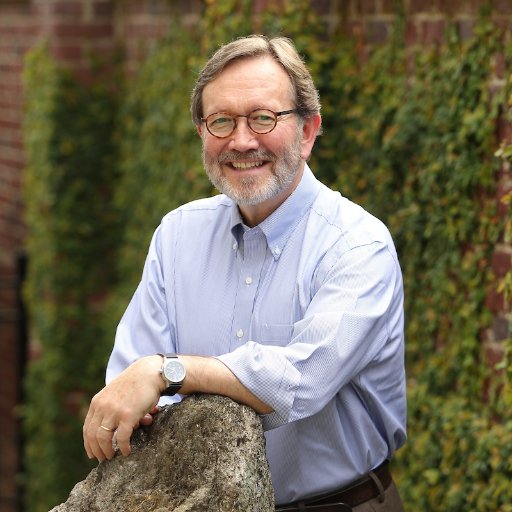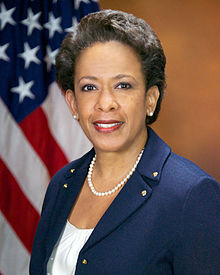Attorney General Jeff Sessions to testify soon before the Senate Intelligence Committee– (Watching live-streamed on C-Span, as with former FBI director James Comey’s testimony last week)
As has been adequately reported, or almost adequately, Sessions requested an appearance in open rather than closed setting. Politico notes that
The attorney general is facing increased scrutiny from lawmakers after former FBI Director James Comey testified last week that he knew details about Sessions before his recusal from the Russia probe that would make his involvement in the investigation “problematic.”
The Department of Justice has already released its statement in response to Comey. (View in full below.) Sessions contradicts Comey’s statement on more than one point.
(Attempting to live-blog this appearance. It may curtail some of the cyber theft of bloggers’ writing typical of some Internet sites. As reported this morning, I have found that at least one site, called “Wiky.Team,” is converting my blog site to pdf and selling/giving it away, without my consent. Guess they don’t know that some of us are trying to make a living.)
2:37 p.m. We’re about to start. Room getting quieter. Vote under way on Senate floor. Occasional video shots of the tunnel-like hallway to the room. Senator McCain seats himself. Probably some wondering whether he will be clearer today than he was when questioning Comey.
2:42 p.m. AG Sessions takes his seat. Ranking Democrats shake his hand. Audio forest of cameras going off.
2:43 p.m. Hearing called to order by Senator Richard Burr, chair. Questions re Russia’s interference in 2016 election. “Still scrutinizing CIA budget,” NSA, etc, rest of intelligence community. Mainly “behind closed doors.” Gist: this open hearing an exception. Though not for this year: this is the tenth open hearing of 2017, and the fifth concerning Russia and the election. His Qs for Sessions:
- Did you meet with the Russians?
- Did Trump campaign interact with the Russians?
- What brought you to recuse yourself?
- What role if any did you play in Comey’s firing?
Burr signs off reminding everyone of the need for bipartisanship in intelligence, “above politics.”
2:48 p.m. Senator Warner, ranking Democrat. “Mr. Comey’s revealing testimony last week.” Thanks, but “concern” that Sessions’ appearances before House were canceled so that he could appear before Senate committee. Warner hopes Sessions will speak before the House also. Meanwhile, his Qs for Sessions:
- Any contact with the Russians? – as in the course of the campaign. Mayflower Hotel? Provide the committee with any documents, including emails.
- Any part in the firing of Mr. Comey? Comey was “so unnerved” by President Trump that he felt he had to write everything down.- “a shocking statement,” from a top U.S. law enforcement official.
- “How you viewed your recusal” – did it permit Sessions to take part in Comey’s firing?
- “Most importantly,” what are you doing to keep the Russians from doing this again? “Russia massively intervened” in the election.
2:55 p.m. AG Sessions takes the oath. Sessions’ intro statement. Deputy AG has appointed a special counsel to investigate Russia in the elections; reminder.
[First item:] “I did not have any private meetings” with Russians at the Mayflower. Did attend/participate with the president in gatherings, e.g. with the Russian ambassador present. “Then I left the hotel.” “I have never met with” or had any conversation with Russian or other foreign officials re any U.S. election. “I was your colleague in this body” for years –“any collusion with the Russian government” to undermine the integrity of democratic process in this country is “an appalling lie.” Re Senator Franken’s question, and subsequent questions — in any meetings with Russians, others present, public; nothing with regard to the U.S. elections.
[Second item:] From the time of his recusal on, did not receive any information about the investigation. Nothing beyond public reporting. “Taken no action” regarding the investigation, since the date of his recusal. Sent memo to his staff telling them “not to brief me” on the investigation, and they have not. According to regulation, official recuses self re any campaign in which s/he served.
[Third item:] Meeting with Mr. Comey, regarding his conversation with the president (day before). Comey expressed concern re communications with WH. “I responded by agreeing that the FBI” and DOJ needed to be careful re communicating with WH, “especially about ongoing investigations.”
“I did not recuse myself from defending my honor against scurrilous and false accusations.”
Burr, Sessions. The Russian ambassador “was there”; Sessions does not recall a conversation with him. Reception area; no private meeting. Another encounter at the convention, reported.
Burr, Sessions. March 7, 2017, recusal. Specific reasons? C.F.R. (Code of Federal Regulations) [reads aloud] Fed employee cannot participate in a prosecution or investigation if s/he has a “personal or political relationship” with the subject. (As in DOJ statement posted below.)
Burr, Sessions. No interactions with Special Counsel Robert Mueller since the recusal. Burr, Sessions. “Foreign policy team” for Trump campaign? – not very cohesive.
Warner. Tries to get wholesale assurance that Sessions will appear when demanded. [Sen. Overreacher]
Warner, Sessions. No basis for reports that Trump will remove Mueller. Confidence in Mueller. “I know nothing about the investigation.” Sessions could not take any action that would result in Mueller’s being fired. Warner, Sessions. Any talk of firing re the Russia investigations? – cannot comment on internal DOJ discussions. Warner, Sessions. Sessions did not speak with Comey about Comey’s performance. A memo was prepared by the Deputy AG. “Out of the blue, the president fires the FBI director.”
Warner, Sessions. April 27, 2017, meeting at Mayflower Hotel, when Sessions was in Trump campaign. No recollection whether the Russian ambassador had conversation with Jared Kushner. Cannot remember Sessions talking with the ambassador. Would not have been inappropriate if he had, but does not remember a meeting. Sessions was part of the VIP reception. No communications with the ambassador before or after.
Warner, Sessions. Re Comey’s one-on-one meeting with President Trump, “Mr. Comey was sitting” before the president, and they were talking. Next day, Sessions backed Comey up in his concerns. Comey a former Deputy AG.
Senator Jim Risch (R-Idaho). Russia awfully important. Flawed NYTimes article. [C-Span crawl: Dianne Feinstein up next.] In Trump campaign, no mention or suggestion of Russian interference.
Senator Dianne Feinstein (D-California). DOJ and AG Sessions were asked for opinion on firing Comey; provided it. “Let his words speak” for themselves. Cannot comment on internal oral communications with the president. The written statement was made public by the president.
Feinstein, Sessions. When Comey publicly declined to prosecute Hillary Clinton, “thunderous thing” — usurpation of the authority of the AG. Historically, also, a public statement not done; caused concern on both sides of the aisle.
Senator Marco Rubio (R-Florida). February 14, 2017, meeting with president. “His testimony was that you lingered.” Sessions was “one of the last ones to leave.” Had finished a counter-terrorism briefing. “I left. It didn’t seem to me to be a major problem.” Rubio, Sessions. Not just a “shrug.” No prohibition on private meetings with the president. Comey could also call his direct supervisor, the Deputy Attorney General. No knowledge of recording by president.
Rubio, Sessions. GOP plank not to provide weapons to Ukraine. No involvement in conversation about it.
Will Wyden reveal what Comey said in the closed hearing?
Senator Ron Wyden (D-Oregon). Open hearing good. “Stonewalling” bad.
Wyden, Sessions. “Basically, I recused myself the first day I got into office”–never got into any files, etc. “Why don’t you tell me?” — “secret innuendo.” [Wyden excoriates closed hearing. Then asks Q about something Comey presumably told them about in closed hearing.]
Senator Susan Collins (R-Maine).
Collins, Sessions. Sessions and Rosenstein had discussed Comey’s email statements before either of them was confirmed. – based on investigation of Hillary Clinton. Collins, Sessions. AG had a “responsibility” to engage in the decisions about Comey as FBI director. Collins, Sessions. Appropriate for Comey to talk of his discomfort with his direct supervisor. That would have been Deputy AG Dana Boente. Esp if he knew Sessions was going to recuse himself.
Senator Martin Heinrich (D-New Mexico). [Why do Dems keep talking about “executive privilege”? AG rightly says that’s the president’s prerogative. He is not invoking it.] [On second thoughts, I guess some Dems are playing to media hunger for another Watergate. Trawling for media moments with ‘executive privilege’ sound bite. The ‘executive privilege’ straw man reminds everyone of Nixon.]
Heinrich. “I’m asking about your personal knowledge.” “You are obstructing” an investigation. “Your silence . . . speaks volumes.” [Heinrich is not a lawyer.]
Sessions. “Breathtaking” usurpation of authority of AG. The FBI director does not decide whether to prosecute.
Senator Roy Blunt (R-Missouri).
Blunt, Sessions. No room at Mayflower where Sessions had private meetings. No private meetings. “I didn’t have any formal meeting with him”; “may have had an encounter.” Maybe other ambassadors at that reception as well. No lengthy discussion with Russian ambassador, if any.
Blunt, Sessions. The conversation betw Sessions and Comey was either next morning or morning after that. “Yes, I did respond.” “I think he was incorrect.” Sessions’ chief of staff was with him. Did affirm longstanding guidelines re communications with the WH. They do not prohibit one-on-one conversation betw FBI director and president, but they apply to the entire DOJ re certain investigations.
Senator Angus King (I-Maine). ‘Executive privilege’ again from King. King, Sessions. Protecting confidential communications for the WH and AG. King rehashes Q of Sessions’ revealing a communication already communicated by the president. No information re the Russian investigation. King, Sessions. “My evaluation” of Comey–not a sole written evaluation. Other reasons besides Hillary Clinton.
Senator James Lankford (R-Oklahoma). Precedent for an AG to keep some things confidential.
Lankford, Sessions. This morning Rod Rosenstein “was peppered with questions about Russia” in private setting; “he was very clear” that he’s had no conversations with Sessions about Russia. Also latest story re Mueller’s getting fired: Rosenstein said he was the only one with authority to do that, and he is not contemplating firing him. [Finally – breath of clarity.]
Lankford, Sessions. “Recusal meant recusal.” Reception situation clarified as well. [Reads statement aloud.]
Senator Joe Manchin (D-West Virginia). No discussion of lifting sanctions against Russia.
Manchin, Sessions. Closed session? – maybe. “Very problematic” in an ongoing investigation. No other meetings with Russian officials. None discussed manipulating U.S. campaigns. No other meetings betw Russian officials and Trump campaign than have been reported. Paul Manafort? Steve Bannon? Reince Priebus? Steve Miller? Lewandowski? -Do not recall or do not know of any meeting of Russians with any. Maybe Page, already reported.
Manchin, Sessions. Ask re any “impact” of Russian interference on this election.
Senator Tom Cotton (R-Arkansas). Did Trump or any associates collude with Russia to affect the election? [Answers his own Q: no evidence. Nothing.]
Cotton, Sessions. No understanding of Comey’s allusion to Sessions. No understanding why Comey accused Sessions of not responding. Cannot speculate on why Comey distrusted Trump from the first as stated.
Senator Kamala Harris (D-California). “To the best of your recollection.” Any written docs? “I didn’t keep notes on most of these things.” Will supply Committee “as appropriate.” Harris, Sessions. Any undisclosed conversations with Russians during the campaign? Any communications betw Trump officials and Russia during campaign? None to recall. [Now Harris tries to pin Sessions down on a written DOJ policy re not telling what the AG told the president. “Yes, I consulted.” – “Did you ask [underlings] to show you specific policy on this?” – (Sounds like a no.)] [Harris was much better last time.]
Senator John Cornyn (R-Texas). Formal recusal was on March 2, 2017. Russian investigation began later. Cornyn, Sessions. DOJ letter/memo re Comey did not mention Russia.
[Black-letter law? I thought that the necessity for frank confidential communications for the White House was a given.] [This would not apply if the WH were committing a crime. But neither Dems nor Repubs say that Trump and the campaign colluded with Russia.]
Senator Jack Reed (D-Rhode Island). Seemingly a good opinion of Comey at some months, then agreeing with the Rosenstein memo later. Reed, Sessions. Comey should not have commented publicly on the Clinton email investigation to begin with; went against classical precedent. DOJ recommendation was put in writing (had nothing to do with Russia).
Sure enough, Senator McCain was asking about Ukraine before
Senator John McCain (R-Arizona). Ukraine. McCain, Sessions. Sessions raised concerns about Ukraine as a senator. Even argued with Russian ambassador about the Ukraine. Not about Assad in Syria or the U.S. election. No contacts with Russian officials or lobbyists during the 2016 campaign. Cyber threats not good for anyone. Including the world. [Reasonable view.]
Warner again. “Russian intervention” versus “witch hunt” and “fake news.”
“A series of comments made by Mr. Comey last week”–If there are these longstanding written procedures to protect communications with pres, we need to see them. – ties same back to Russia. [Why wd Dems think they will win politically by wrapping themselves in the mantle of Jim Comey? Have they all forgotten the GWBush White House?]
Burr again. Qs about Mayflower meetings, recusal answered. Provide any documents possible, anything that substantiates your testimony today, individuals present.
5:08 p. m. “This hearing’s now adjourned.”
Department of Justice Issues Statement on Testimony of Former FBI Director James Comey
In response to testimony given today by former FBI Director James Comey, Department of Justice Spokesman Ian Prior issued the following statement:
- Shortly after being sworn in, Attorney General Sessions began consulting with career Department of Justice ethics officials to determine whether he should recuse himself from any existing or future investigations of any matters related in any way to the campaigns for President of the United States.
Those discussions were centered upon 28 CFR 45.2, which provides that a Department of Justice attorney should not participate in investigations that may involve entities or individuals with whom the attorney has a political or personal relationship. That regulation goes on to define “political relationship” as:
“[A] close identification with an elected official, a candidate (whether or not successful) for elective, public office, a political party, or a campaign organization, arising from service as a principal adviser thereto or a principal official thereof ***”
Given Attorney General Sessions’ participation in President Trump’s campaign, it was for that reason, and that reason alone, the Attorney General made the decision on March 2, 2017 to recuse himself from any existing or future investigations of any matters related in any way to the campaigns for President of the United States.
- In his testimony, Mr. Comey stated that he was “not *** aware of” “any kind of memorandum issued from the Attorney General or the Department of Justice to the FBI outlining the parameters of [the Attorney General’s] recusal.” However, on March 2, 2017, the Attorney General’s Chief of Staff sent the attached email specifically informing Mr. Comey and other relevant Department officials of the recusal and its parameters, and advising that each of them instruct their staff “not to brief the Attorney General *** about, or otherwise involve the Attorney General *** in, any such matters described.”
- During his testimony, Mr. Comey confirmed that he did not inform the Attorney General of his concerns about the substance of any one-on-one conversation he had with the President. Mr. Comey said, following a morning threat briefing, that he wanted to ensure he and his FBI staff were following proper communications protocol with the White House. The Attorney General was not silent; he responded to this comment by saying that the FBI and Department of Justice needed to be careful about following appropriate policies regarding contacts with the White House.
- Despite previous inaccurate media reports, Mr. Comey did not say that he ever asked anyone at the Department of Justice for more resources related to this investigation.
- In conclusion, it is important to note that after his initial meeting with career ethics officials regarding recusal (and including the period prior to his formal recusal on March 2, 2017), the Attorney General has not been briefed on or participated in any investigation within the scope of his recusal.











